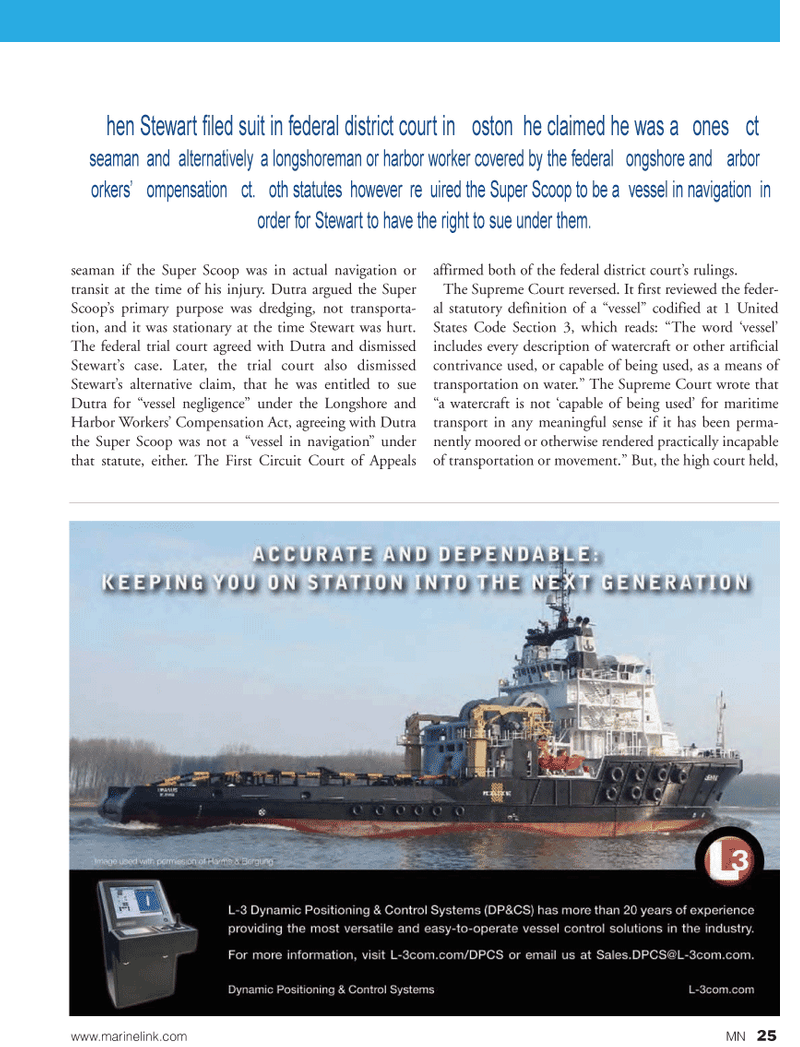
Page 25: of Marine News Magazine (June 2012)
Dredging & Marine Construction
Read this page in Pdf, Flash or Html5 edition of June 2012 Marine News Magazine
www.marinelink.com MN25seaman if the Super Scoop was in actual navigation or transit at the time of his injury. Dutra argued the Super Scoops primary purpose was dredging, not transporta- tion, and it was stationary at the time Stewart was hurt. The federal trial court agreed with Dutra and dismissed Stewarts case. Later, the trial court also dismissed Stewarts alternative claim, that he was entitled to sue Dutra for vessel negligence? under the Longshore and Harbor Workers Compensation Act, agreeing with Dutra the Super Scoop was not a vessel in navigation? under that statute, either. The First Circuit Court of Appeals affirmed both of the federal district courts rulings. The Supreme Court reversed. It first reviewed the feder- al statutory definition of a vessel? codified at 1 United States Code Section 3, which reads: The word vessel includes every description of watercraft or other artificial contrivance used, or capable of being used, as a means of transportation on water.? The Supreme Court wrote that a watercraft is not capable of being used for maritime transport in any meaningful sense if it has been perma- nently moored or otherwise rendered practically incapable of transportation or movement.? But, the high court held, hen Stewart filed suit in federal district court in oston he claimed he was a ones ct seaman and alternatively a longshoreman or harbor worker covered by the federal ongshore and arbor orkers? ompensation ct. oth statutes however reuired the Super Scoop to be a vessel in navigation in order for Stewart to have the right to sue under them.

 24
24

 26
26
